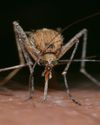
A Debatable Origin
Virologists do not have a single answer to the question of the origin of viruses. There are three possibilities. According to the escape or progressive hypothesis, viruses originated from genetic material that “escaped” from cells. The reduction or regressive hypothesis states that viruses evolved from organisms that lost genetic material over time, keeping only genes required for parasitism. Both these hypotheses consider the existence of viruses after cells. Could viruses have evolved together with cells? Could they have originated before? The co-evolution or virus-first hypothesis talks about this possibility. However, to date, there has been no clear explanation about where did viruses come from.
A Puzzling Existence
Viruses are strange. Outside a living cell, they are not alive. But, they start reproduction the moment they enter a living cell. They synthesize new copies of themselves and exit the cell to infect other cells. They are obligate parasites, which cannot complete their life cycle without exploiting a suitable host.
A virus can get inside a living cell if its outer coat and the cell surface of the host are compatible with one another. It is similar to the lock-and-key mechanism. This is what makes the viruses species-specific. Some viruses are further restricted to limited cell types within the host because of the same reason.
Some viruses are further restricted to limited cell types within the host because of the same reason. Since viruses reproduce without growth, it gets difficult to classify their existence as living or non-living. This exception makes them unique!
هذه القصة مأخوذة من طبعة November - December 2021 من Scientific India.
ابدأ النسخة التجريبية المجانية من Magzter GOLD لمدة 7 أيام للوصول إلى آلاف القصص المتميزة المنسقة وأكثر من 9,000 مجلة وصحيفة.
بالفعل مشترك ? تسجيل الدخول
هذه القصة مأخوذة من طبعة November - December 2021 من Scientific India.
ابدأ النسخة التجريبية المجانية من Magzter GOLD لمدة 7 أيام للوصول إلى آلاف القصص المتميزة المنسقة وأكثر من 9,000 مجلة وصحيفة.
بالفعل مشترك? تسجيل الدخول

Building world's 1st pyramid
In a preprint study published this summer, researchers proposed that ancient Egyptians built the world's first pyramid the 4,700-year-old Step Pyramid of Djoser, which sits on Egypt's Saqqara plateau using a \"modern hydraulic system\" powered by a long-gone branch of the Nile River.

Climate change arms the world, ovarian cancer pulls the trigger.It's time we disarm them both
Climate change, driven by human activities, leads to environmental changes such as rising temperatures, altered weather patterns, and increased pollution.

Climate Change Added 18 mph to Hurricane Wind Speeds over Past 5 Years
High ocean temperatures caused by global warming boosted maximum intensities for most storms between 2019 and 2023, as well as for every 2024 hurricane.

How Indian Vulture Decline Led to 500,000 Deaths in 5 Years
Once a common sight across India, vultures were abundant scavengers, often seen circling landfills in search of carcasses.

Understanding Monkeypox: Insights and Implications
Monkeypox, a viral zoonotic disease, has gained significant attention in recent years due to its re-emergence and sporadic outbreaks globally.

AI predicts that most of the world will see temperatures rise to 3°C much faster than previously expected
Three leading climate scientists have combined insights from 10 global climate models and, with the help of artificial intelligence (AI), conclude that regional warming thresholds are likely to be reached faster than previously estimated.

Infrared Radiation: A New Player In Mosquito Host-Seeking
The sound of mosquitoes is all around us when the sun sets and the air gets warm and sweltering.

Fish Oil May Benefit to Cure Alzheimer's, disorder: new findings
The benefits of fish and fish oil consumption are well-known in medical science as fish is considered a precious food resource that provides sufficient nutrition to humans.

A new class of antivirals could help prevent future pandemics
The arrival of Paxlovid in December 2021 marked another turning point in the COVID-19 pandemic an effective antiviral that has since successfully treated millions.

Turning carbon emissions into methane fuel
Chemists have developed a novel way to capture and convert carbon dioxide into methane, suggesting that future gas emissions could be converted into an alternative fuel using electricity from renewable sources. Carbon dioxide (CO2) is a greenhouse gas that accounts for a large part of Earth's warming climate, and is produced by power plants, factories and various forms of transportation.